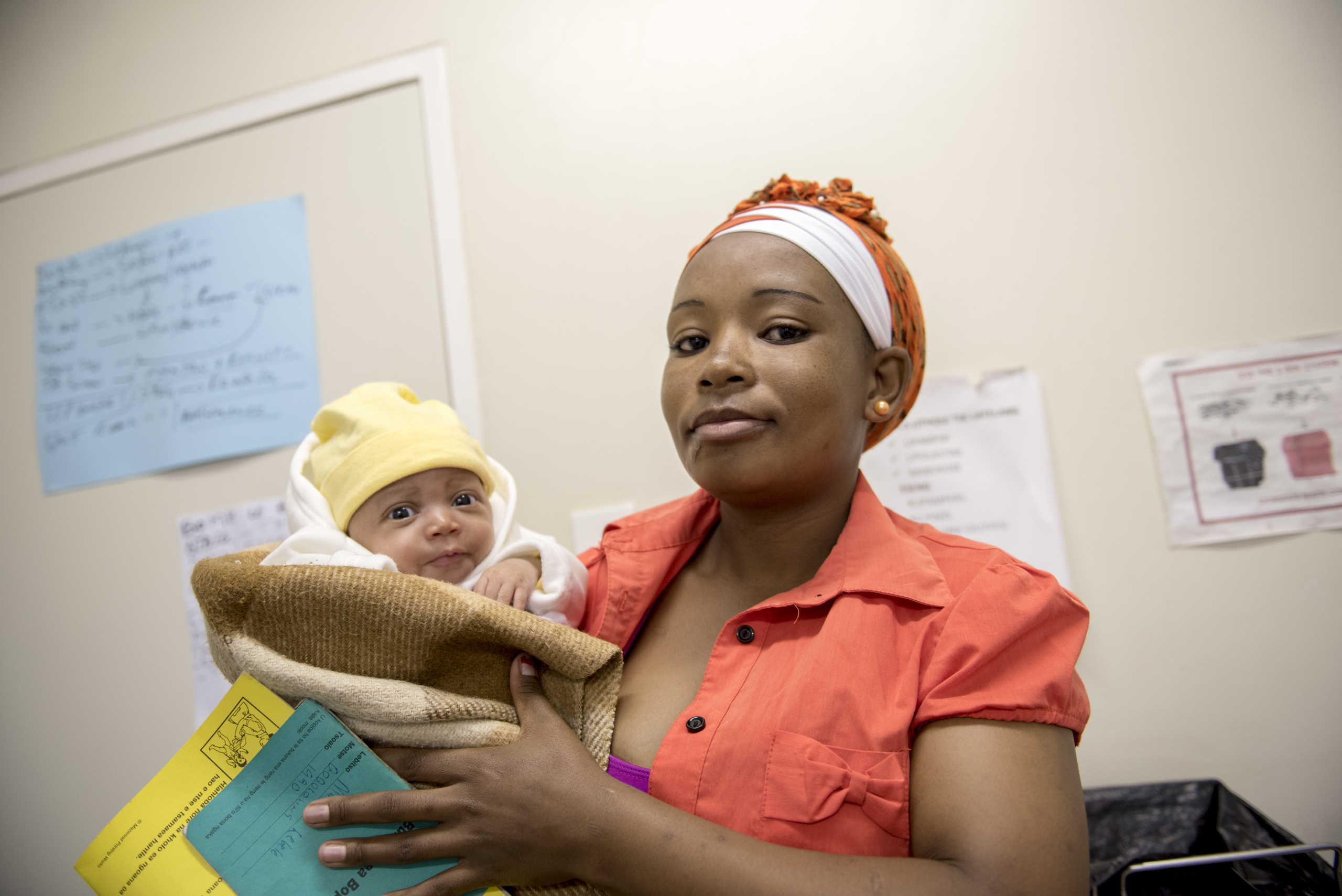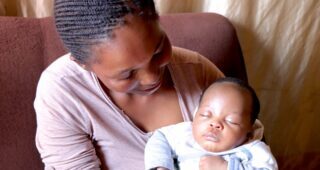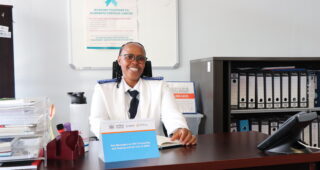How HIV-Positive Mothers Are Paving the Way to an AIDS-Free Generation (with Help from EGPAF)
Every day, women in cities, and towns, and villages around the world are stepping forward — joining the journey to an AIDS-free generation. Step-by-step, woman-by-woman, they are moving the world ever closer to the day when no child has AIDS. The Elizabeth Glaser Pediatric AIDS Foundation is taking every step alongside those mothers.


Read these powerful stories of five women that EGPAF supports through care, treatment, and prevention programs that help guide them through the critical steps needed to protect themselves and their children from HIV.

Each woman knows her HIV status. A woman takes the first step on the path to an AIDS-free generation when she gets tested for HIV. By knowing her status, she can begin HIV treatment, if needed — keeping her alive and healthy, and helping to prevent transmission to her baby. It is estimated that around 30% of people with HIV are not aware that they have contracted it. Nelly and Peter are newlyweds living in Turkana County, Kenya, a remote arid region. They are interested in starting a family soon. One day a mobile clinic, supported by the Elizabeth Glaser Pediatric AIDS Foundation (EGPAF) arrived at the periphery of their village to provide HIV testing and counseling. The young couple decided to find out their status. Fortunately, the results for both came back negative. If the results had been positive, they would have been started on treatment immediately and Nelly would have an excellent chance of delivering an HIV-free baby when the time came as long as she adhered to treatment and enrolled in prevention of mother-to-child HIV transmission (PMTCT). Read more about Nelly and Peter’s story.

She protects her baby. During HIV testing and counseling, a woman learns that she does not need to fear passing HIV to her unborn children. An HIV-positive woman can have an HIV-free baby if she adheres to prevention of mother-to-child HIV transmission (PMTCT) protocols throughout pregnancy and breastfeeding. Shortly after Justine received her HIV diagnosis, she discovered that she was pregnant. Her friends directed her to the antenatal clinic supported by the Elizabeth Glaser Pediatric AIDS Foundation at Bamenda Regional Hospital. Health workers at the clinic counseled Justine about the importance of enrolling in PMTCT to protect her unborn baby. “Now I know the staff,” says Justine. “They give me advice, treat me well. They told me what to do to avoid my baby becoming infected with HIV.” Read more about Justine’s story.

She unites with other mothers. No woman should have to bear the challenge of HIV alone. Peer support groups help HIV-positive women adhere to treatment. They provide HIV education, encouragement, and psychological and logistical support. Christine is a young mother living with HIV in Abidjan, Côte d’Ivoire. When she discovered that she was pregnant, she came to the antenatal clinic at St. Therese Hospital and was enrolled in PMTCT. But she received more than medicine from her clinic visits. She also joined a peer support group for mothers and pregnant women living with HIV. Throughout pregnancy she received encouragement from the other women to stay on treatment and she was able to ask questions of her peers and health workers so that she could protect her baby’s health, as well as her own. Now that young Jacqueline has been born, Christine continues to go to the support group. Read more about this peer support group for mothers and pregnant women.

She knows the HIV status of her baby. Once her baby is born, a mother can monitor the HIV status of her child through early infant diagnosis and periodic testing. This means that if a child does happen to be born with HIV for some reason, that infant can be put on treatment and live a long AIDS-free life. Today, Lebele Mathato has brought her daughter, Nyakallo, for her 6-week-old check-up at the Maputsoe Clinic in Leribe, Lesotho. Nyakallo is alert and growing well. But as a woman living with HIV, Lebele has a lingering concern. Has she transmitted the incurable virus to her daughter during pregnancy or childbirth? Lebele has been following PMTCT protocols throughout pregnancy and is continuing now as she is breastfeeding Nyakallo. This particular clinic is equipped with a point-of-care machine, which can diagnose in less than an hour. A health worker pricks Nyakallo’s heel and places the blood sample in the machine. Mother and child continue with vaccinations. When they return to the HIV counseling room, the results are ready. Nyakallo has tested negative for HIV, much to Lebele’s relief. “I just like a good life for her,” says Lebele, “I don’t want my baby to be sick.” Read more about Lebele and Nyakallo.

She celebrates. Graduation is the final step on the path to and AIDS-free generation. When her baby reaches 18 months, a mother takes the child for a final HIV test. If she has followed PMTCT protocols throughout pregnancy and breastfeeding, she can celebrate that her child is HIV-free. Today, Proscovia, an HIV-positive mother in rural Uganda, is receiving congratulation that her 18-month-old son, Ignicious, has been officially declared HIV-free. Proscovia has followed PMTCT protocols through pregnancy and breastfeeding and has faithfully attended a monthly family support group at the Kihihi Health Center in southwest Uganda. Dina Kisimi, the primary nurse midwife and the focal person for PMTCT gives Proscovia the news with a glad heart. “I am the one who delivered Proscovia’s baby,” says Nurse Kisimi. “And now I am the last one giving her the results, which are negative. I’m very happy to see that.” Read about Proscovia and Ignicious.
Over 400 babies are born with HIV each day. Together, we can take that number down to zero.
Anjana Padmanabhan, Senior Manager, Digital & Interactive Marketing, EGPAF
Prevention of Mother-to-Child Transmission



